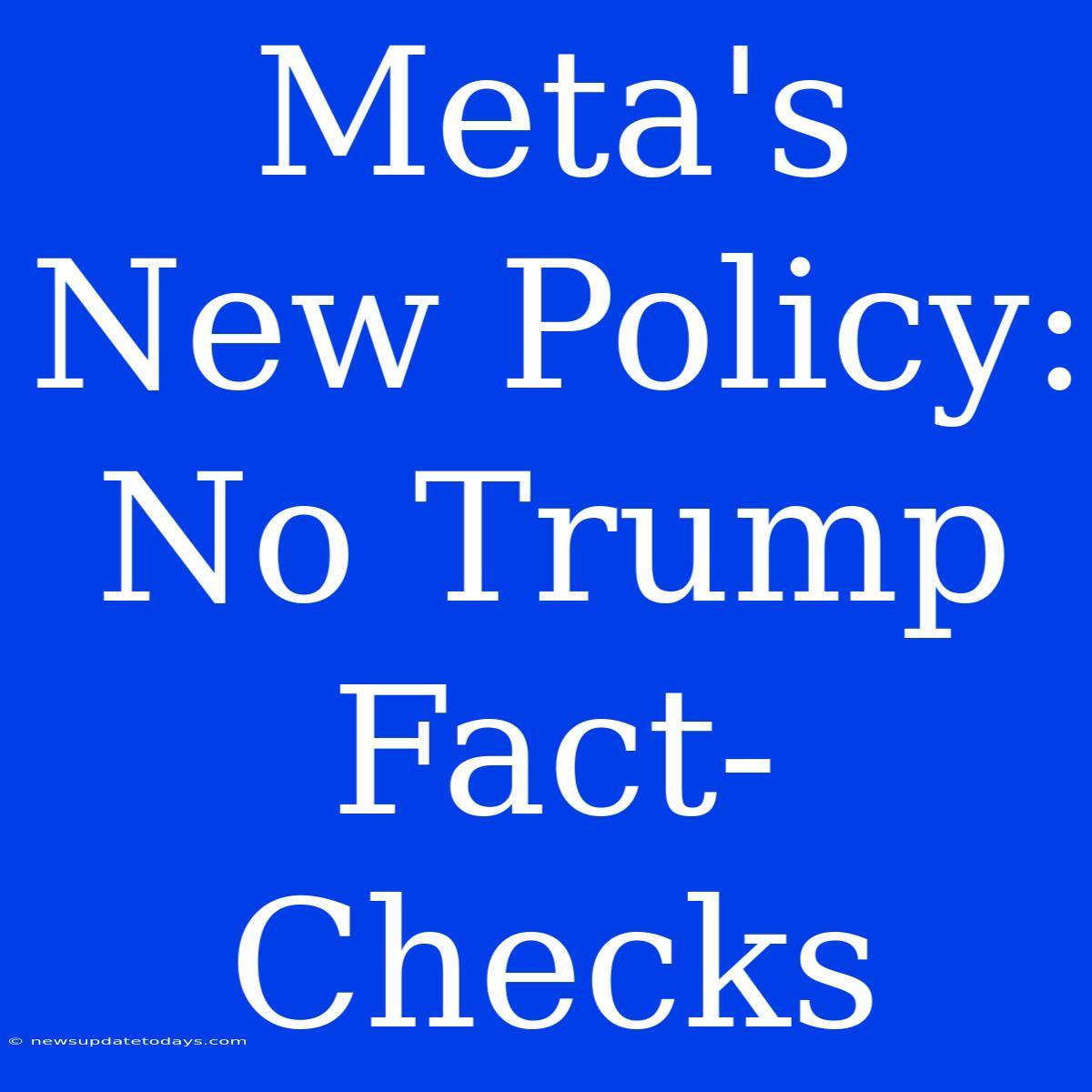Meta's New Policy: No More Trump Fact-Checks? The Implications
Meta's recent decision to no longer fact-check posts from former President Donald Trump has sent shockwaves through the tech world and beyond. This policy shift raises significant questions about the platform's responsibility in combating misinformation and its impact on the upcoming election cycle. This article delves into the details of Meta's new policy, exploring its potential consequences and sparking a discussion about the delicate balance between free speech and the spread of false narratives.
The Core of the Issue: Meta's Rationale
Meta, parent company of Facebook and Instagram, justified its decision by arguing that Trump's posts no longer warrant fact-checking under their updated guidelines. These guidelines, according to Meta, prioritize content that poses an immediate risk of real-world harm. While Trump's statements have historically been flagged for inaccuracies, Meta's assessment now seems to be that the risk threshold has not been met, prompting the cessation of fact-checking. This leaves many to ponder what constitutes "immediate risk" and how this threshold is applied consistently across different types of potentially misleading content.
Criticisms and Concerns:
The decision has been met with widespread criticism from various quarters. Many accuse Meta of prioritizing profit over responsible content moderation. Critics argue that allowing unchecked misinformation from high-profile figures like Trump can have significant consequences, influencing public opinion and potentially inciting violence. The absence of fact-checks arguably provides a platform for the dissemination of false claims, potentially impacting election integrity and undermining public trust in institutions. The question remains: is Meta abdicating its responsibility in upholding truth and accuracy on its platforms?
<h3>The Impact on the 2024 Election</h3>
With the 2024 US Presidential election on the horizon, the implications of this policy shift are particularly profound. The potential for the spread of false or misleading information about the election process itself is a major concern. The lack of fact-checking for Trump's posts could create an environment where unsubstantiated claims about election fraud or irregularities gain traction, potentially affecting voter turnout and confidence in the election results. This creates a worrying scenario where misinformation could be weaponized to undermine democratic processes.
<h3>Balancing Free Speech and Responsibility</h3>
This decision highlights the persistent challenge faced by social media platforms: balancing freedom of speech with the responsibility to combat misinformation. It's a complex issue with no easy answers. While the principle of free speech is paramount, the question becomes how to manage the potential harm caused by the unchecked spread of false information. Meta's new approach suggests a prioritization of free speech, even if it means potentially allowing the proliferation of inaccurate or harmful claims. This approach raises concerns about the platform's ethical responsibilities and its role in safeguarding public discourse.
Looking Ahead: The Ongoing Debate
Meta's policy change regarding Trump's posts has ignited a crucial debate about content moderation, misinformation, and the responsibility of social media platforms in shaping public discourse. The long-term consequences of this decision remain to be seen, but it’s clear that this is a pivotal moment in the ongoing battle against misinformation and the role of tech giants in shaping our information ecosystem. The discussion surrounding this issue is far from over, and it’s crucial to continue evaluating the implications and advocating for responsible content moderation on social media platforms.

